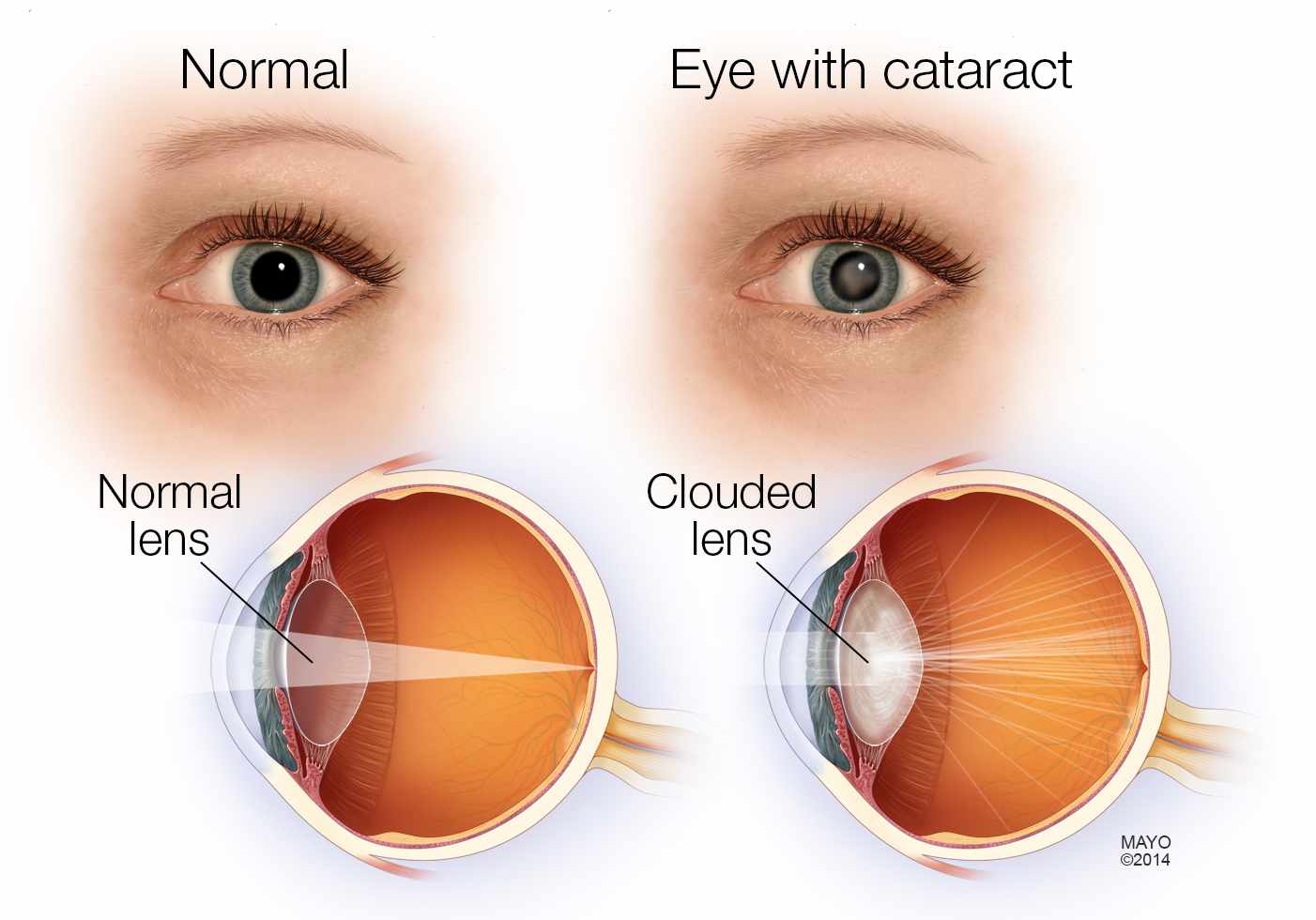Cataract Awareness Month

Blog vol 4. 3. Cataract Awareness Month
I see cataracts every day. Most people develop cataracts at some point. A cataract is a blurring of the lens of the eye caused by the breaking down of protein structures. This is usually age-related but can be present at birth, secondary to another medical issue, a result of trauma to the eye, or possibly due to large amounts of sun exposure. Cataract surgery is simply the removal of the cloudy lens and the insertion of a new clear lens. Poof, you can see!
The problem with cataracts is that they sneak up on you. Cataracts usually come on so gradually that you can be visually impaired from them and not even know, our visual systems are that good at adapting. I usually see traces of cataracts starting in a patient’s late 50s, but the average age in Ontario for OHIP cataract surgeries is 73.5 years. That’s a 15-year development. Remember your newborn in diapers then jump forward to your child getting their driver’s license, similar time period, that long (and that short, for you parents out there).
AN ASIDE, as a follower of art history, I always find it fascinating to see when an artist started to develop cataracts (if they lived long enough), the paintings shift to a hazier more brownish tone. Interesting fact.
Cataracts are normal but they can be a serious problem if not treated in a timely manner. In the elderly, the number one cause of falls and subsequent broken hips is visual impairment from cataracts, as you need a lot more light to see through a cataract. There is no reason for this to happen. Get your eyes checked! If caught early, cataracts can be removed before they become debilitating.
Cataracts, today, are very treatable. The most frequently performed surgery in North America is cataract removal. In the past, there was no way to get rid of them, outside of hoping that your lenses were dislocated if you got konked on the head with a club.
I read a wonderful book on an innovative and skilled ophthalmologist from Nepal, Dr. Sanduk Ruit, who has developed new techniques, methods, and materials that make these surgeries more universally accessible. Really life-changing and enabling for so many.
In places in the world where health care is not readily accessible, cataracts are the number one cause of vision loss. Cataracts also happen a lot earlier in many of these places for various reasons, with onset in the early 40s. MMI (Medical Missions International) sends out eyecare teams to remote, health-care-starved regions to provide eyeglasses and surgeries, particularly cataract surgery, to people who do not normally have access. The results can be so dramatic and can mean the difference between being blind and seeing clearly, between poverty, dependence, and a working, active life, so exciting, and a wonderful thing to witness.
The Amazon medical boat, the Mau Ipata, will have, amongst many other things, an eye clinic and surgery. Burlington Eyecare is raising the money for the eye clinic equipment (we are well over half of the way there:). This will make eyecare services available to the people of Peru, Columbia, and Brazil, including cataract surgery. (Follow this link for videos displaying the boat's plans and progress).
So… GET YOUR EYES CHECKED REGULARLY, and if you have cataracts we can refer you to some great surgeons. Also, help other people have the same opportunity and support the efforts of groups like Medical Ministry International.
‘til next week,
the good doctor






